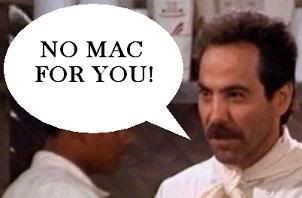Romance is never an easy thing, but it certainly becomes complicated when the participants all work in a zoo. I love this article because of the zany and hilarious opening sentence. How often do you get to use "meerkat?
Wednesday, October 14, 2015
Friday, October 2, 2015
Watching Seinfeld in Cuba
Last week I was pleasantly surprised to learn that they show Seinfeld reruns on television at 10:00pm every evening. The episode I watched was the infamous/classic ¨Soup Nazi¨ saga. What was interesting about this was that the word ¨Nazi¨ was bleeped everytime one of the Seinfeld characters mentioned it. In the Spanish subtitiles they used the word ¨engruñon¨ instead of ¨Nazi.¨ Very interesting. I wonder why they did that?
Tuesday, September 29, 2015
Why Steinbeck Still Matters
I decided to read Grapes of Wrath and I have been blown away by the power of the
writing. He captures the spirit of desolation, isolation, frustration and
avarice that really brings home the experience of so many Americans in the 1930
moving from Oklahoma and Kansas to California.
A lot of what Steinbeck wrote about remains
very relevant today. Take for example this text from The Grapes of Wrath, “It ain’t that big. The whole United States
ain’t that big. It ain’t that big. It ain’t big enough. There ain’t room enough
for you an’ me, for your kind an’ my kind, for rich and poor together all in
one country, for thieves and honest men. For hunger and fat Whyn’t you go back
where you come from?” In the text the character is speaking to Americans from
Oklahoma and Kansas migrating to California. We see that issues of class
pervade the sentiment. There is no indication of race in the disquisition, but
that does not mean it wasn’t there. Fast forward to 2015 and this same
character would direct the same message to a different audience: to immigrants
and to the lower class. Steinbeck mocks the lack of education of those who
abused the migrants in the 1930 by imbuing their language with vocabulary that
speaks to their incivility. Little did he know that he was ridiculing those who
many years later would become more prominent in American public life: the Tea
Party. Economies change, technologies change, even societal experiences change,
Steinbeck seems to say, but stupidity never changes. What would Steinbeck say if he were alive
today? What would he make of Wall Street financiers and the Occupy movement? Or
the Black Lives Matter movement?
There are moments in The Grapes of Wrath
where Steinbeck is optimistic about mankind’s future. He writes, “For man,
unlike any other thing organic or inorganic in the universe, grows beyond his
work, walks up the stairs of his concepts, emerges ahead of his
accomplishments.” But then, he writes a more harrowing view of humanity:
“Having stepped forward, he may slip back, but only half a step, never the full
step back. This you may say and know it. This you may know when the bombs
plummet out of the black planes on the market place, when prisoners are stuck
like pigs, when the rushed bodies drain filthily in the dust.” Ultimately, I
think Steinbeck believed in humanity as long as it did not give up on concepts
and belief. He writes in The Grapes of
Wrath, “And fear the time when the strikes stop while the great owners
live—for every little beaten strike is proof that the step is being taken. And
this you can know—fear the time when Manself will not suffer and die for a concept,
for this one quality is the foundation of Manself, and this one quality is man,
distinctive in the universe.”
Much of what Steinbeck wrote about is
relevant today. The audience may have changed, but the message is still the
same. If only we would be smart enough to listen.
Subscribe to:
Posts (Atom)
